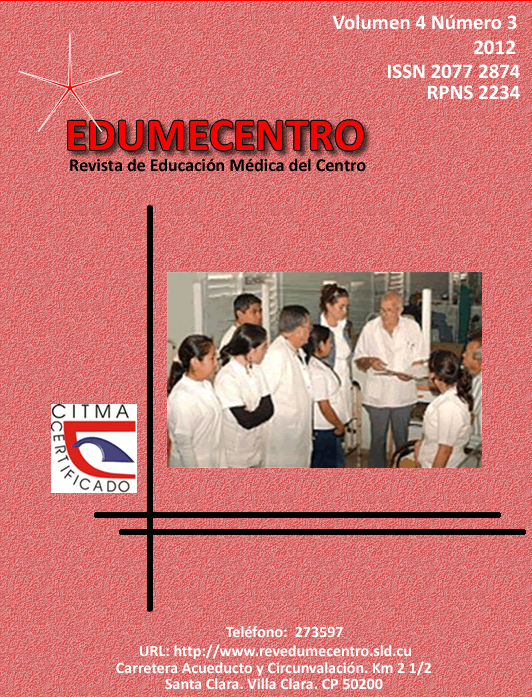El pizarrón, la influencia de su uso en la calidad del proceso de enseñanza aprendizaje
Palabras clave:
Medios de enseñanza, pizarrón, educación médica, enseñanza, aprendizaje, calidad.Resumen
El sistema educativo cubano actual necesita que los docentes de la educación médica superior puedan usar de manera correcta y eficaz la totalidad de los medios de enseñanza que estén a su alcance. Este trabajo tiene el propósito de argumentar la importancia de la utilización del pizarrón en aras de aumentar la calidad en el proceso de enseñanza aprendizaje potenciando la función educativa y humana del maestro. Ninguno de los adelantos de la ciencia y la técnica que existen en las aulas hoy debe sustituir al pizarrón como base para una buena exposición del material a aprender y para generar experiencias de aprendizajes, por lo que se exponen algunas consideraciones sobre su efectividad como medio de percepción directa y modelo explícito de comunicación.Descargas
Los datos de descargas todavía no están disponibles.
Publicado
2013-02-19
Cómo citar
1.
López Pérez R, Pérez Pérez de Prado N, López Pérez G. El pizarrón, la influencia de su uso en la calidad del proceso de enseñanza aprendizaje. EDUMEC [Internet]. 19 de febrero de 2013 [citado 13 de febrero de 2026];4(3):206-15. Disponible en: https://revedumecentro.sld.cu/index.php/edumc/article/view/202
Número
Sección
ARTÍCULO DE REVISIÓN
Licencia
Los autores que publican en esta revista están de acuerdo con los siguientes términos:- Los autores/as conservarán sus derechos de autor y ceden a la revista el derecho de primera publicación de su obra, el cuál estará simultáneamente sujeto a una Licencia Creative Commons Reconocimiento-NoComercial-CompartirIgual 4.0 Internacional (CC BY-NC-SA 4.0) que permite a terceros compartir la obra siempre que se indique su autor y su primera publicación esta revista.
- Los autores pueden establecer por separado acuerdos adicionales para la distribución no exclusiva de la versión de la obra publicada en la revista (por ejemplo, situarlo en un repositorio institucional o publicarlo en un libro), con un reconocimiento de su publicación inicial en esta revista.
- Se permite y se anima a los autores a difundir sus trabajos electrónicamente (por ejemplo, en repositorios institucionales o en su propio sitio web) antes y durante el proceso de envío, ya que puede dar lugar a intercambios productivos, así como a una citación más temprana y mayor de los trabajos publicados (Véase The Effect of Open Access) (en inglés).









